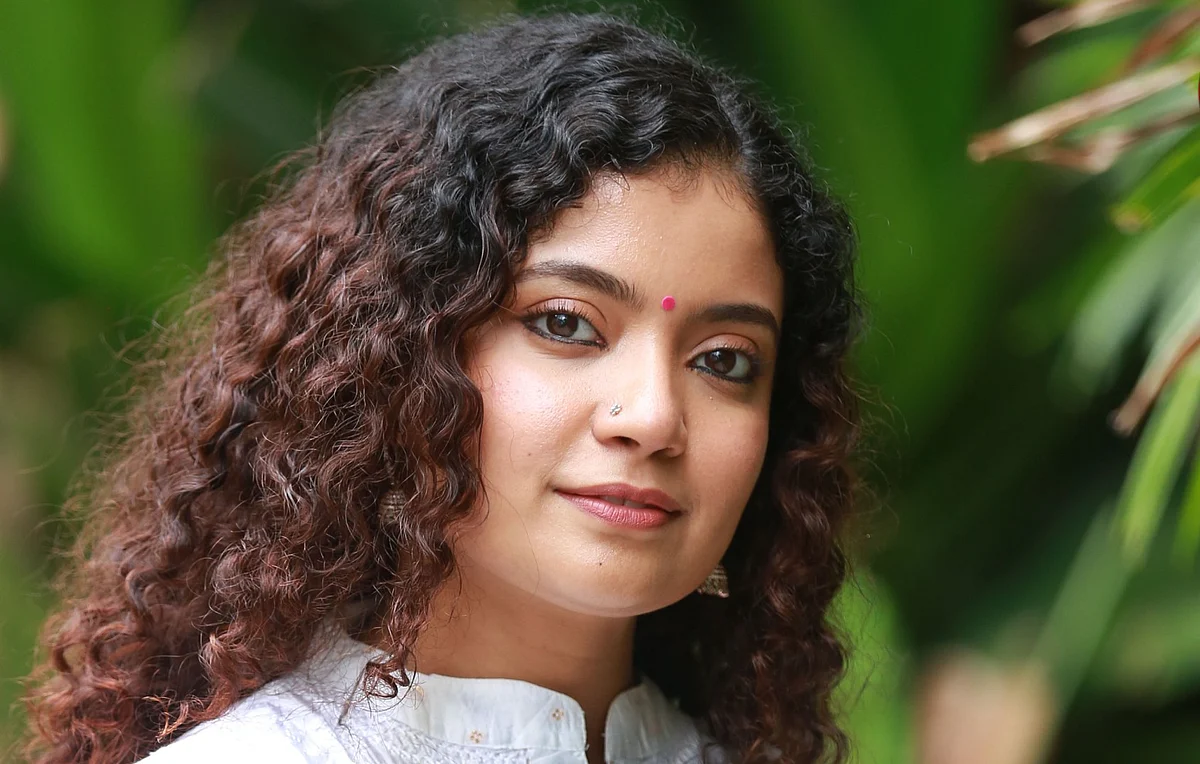You know how some performances don’t shout, don’t sparkle, and don’t demand anything but still just sit in your chest long after the film ends? That’s what Anna Ben did in Kumbalangi Nights. No glamour hurricane. Just her, quietly stealing the show without even looking like she meant to. The film itself? Gritty.
Loaded with broken men and unfinished walls, both literally and emotionally. It was dark in parts, healing in others. But in the middle of that male angst and generational mess, Anna appeared. Simple, understated, almost like she belonged outside cinema. So what made her stand out? Let’s talk about it. In parts. No structure here. Just honesty.
Why Anna Ben’s Performance in Kumbalangi?

Real, Like People You Know
She didn’t look like a debut actress. Or like a heroine, even. No loud makeup. No dreamy angles. No slow-motion entries with wind machines. She just was. Walking, talking, thinking, and reacting like someone who wasn’t told there’s a camera. Anna’s baby doll didn’t need polish. Even the way she tucked her hair or shifted her eyes—none of that was stagey. It was natural. It was so normal that it became powerful.
Calm in a House That Could Collapse
The film had fire in it. Four brothers, all stitched up with some emotional thread unraveling at different speeds. Their house looked like it’d cave in any second.
The fights were real, the wounds too deep. In the middle of all that dysfunction, Anna’s character became something like a pause button. Like the breath you didn’t know you were holding. She didn’t try to fix the men. Didn’t swoop in like a savior. But her presence?
It anchored scenes. Especially with Bobby. He was all over the place emotionally; she wasn’t. She stayed still. She gave him space to fall apart. That’s rare. That’s important. And the actress? She never overreached. That’s what most new actors struggle with. Wanting to prove they can act. Anna didn’t prove anything. She just did it.
A Soft Voice That Cut Deep
When we say “strong female character,” we often imagine someone loud. Angry. Maybe throwing a chair. But Anna showed a different kind of strength, one you almost miss if you’re not watching closely.
There’s that one scene. Her brother-in-law, toxic to the core, tries to control the family like he owns them. Anna doesn’t break down. Doesn’t scream. She just says what she has to, eyes steady, voice clear.
The room changes. No slap. No dramatic background score. But you felt it. That’s how real power moves. Quiet. Precise. No acting masterclass needed. And that’s what’s refreshing. She didn’t act strong. She just was.
Chemistry That Wasn’t Written
Her scenes with Shane Nigam were weirdly real. Not dreamy or fiery or movie-like. Just awkward. Soft. Stammering. That kind of chemistry you find when two people don’t know if they’re falling in love yet, but maybe they are. The glances? Off-timing.
The sentences? Broken in the middle sometimes. That’s what makes it human. Anna didn’t over-rehearse these parts. You could tell. She listened. She waited. She reacted. And it wasn’t all about what she said. It was how she sat in silence. How she didn’t rush to fill space. That’s how actual people connect, right? Half the time we don’t even know what to say. She brought that onto the screen and made it beautiful.
She Wasn’t Trying to Shine So She Did
Here’s what’s wild: she didn’t want to be memorable. But that’s exactly why people remember her. Her performance wasn’t tailored for applause. It was just honest. And honesty? It sticks. Since that film, she’s done more roles. Some bigger, some bolder.

But everyone always circles back to Baby Mol. Not because she was the main character. But because she stayed with us. That’s what a good debut does not take the spotlight but light a quiet flame in the background.
The Ripple Effect After Her Role
Something shifted after Kumba Langi Nights. You could feel it. Directors started looking for actresses who didn’t need to be loud or stylized. Suddenly, it was okay for female characters to be soft. To speak like normal people. To have layers, you needed to unpack.
Anna showed that debut performances didn’t need polish. They needed presence. She didn’t arrive with 10 layers of makeup or dramatic monologues. She arrived with purpose. And Malayalam cinema started paying attention. She was proof that new faces didn’t have to follow the old formulas.
She Didn’t Act Like a Star. She Acted Like a Human
That’s maybe the biggest reason she broke through. There was no performance, not really. Just presence. She wasn’t trying to “become” the character. She already was. The discomfort, the hesitation, and the little movements all felt like things she didn’t even plan. And you can’t teach that.
Some characters just hang around. You forget scenes, maybe. Anna Ben’s baby Mol is one of those. She reminded everyone watching that you don’t need to shout to make people listen. You don't need extraordinary things for. And maybe, just maybe, you don’t need to try so hard at all. Just show up. Be honest. Let the silence speak.
Anna Ben’s performance didn’t announce itself. But it pulled you in, slowly. And efore you knew it, you were sitting with her, thinking with her, hurting with her. In a movie filled with chaos, she was the stillness. In a world full of loud debutantes, she whispered—and somehow, that whisper became unforgettable.













